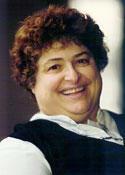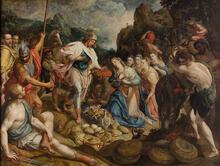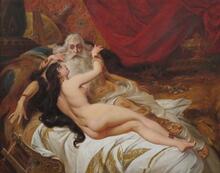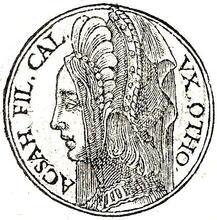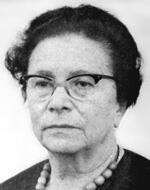Wise Woman of Abel Beth-Maacah: Bible
The Wise Woman of Abel Beth-Maacah is the second of two “wise women” portrayed in 2 Samuel lived in a fortified city in northern Israel. When David’s general Joab batters the city wall where Sheba has staked a rebellion, the wise woman calls out for negotiation. He is familiar with her position, and her speech is a masterpiece of manipulation and suggests a wider metaphorical connotation to “mother in Israel.” More straightforwardly than the story of the wise woman of Tekoa (2 Samuel 14), this narrative depicts what must have been typical leadership activities of a woman in this accepted position against the larger political tensions of David’s reign.
Article
The Wise Woman of Abel Beth-Maacah is the second of two “wise women” portrayed in 2 Samuel lived in a fortified city in northern Israel. More straightforwardly than the story of the wise woman of Tekoa (2 Samuel 14), this narrative depicts what must have been typical leadership activities of a woman in this accepted position against the larger political tensions of David’s reign.
Hostility between the “people of Judah” (David’s tribe of origin in the south) and the “people of Israel” (the ten northern tribes) surfaces following David’s suppression of his son Absalom’s revolt (2 Sam 19:41–43). A Benjaminite, Sheba son of Bichri, capitalizes on the sentiment with a call for the northerners to forsake their “share in David” (20:1)—that is, to rebel or secede. The scene is thus set for Sheba’s flight to the north and refuge in Abel, where David’s general Joab chases him down.
As Joab’s forces batter the city wall, the wise woman calls out to him for negotiations. His immediate response suggests his familiarity with her position and his acknowledgment of its claim to authority. Her next speech (20:18–19) is a masterpiece of manipulation. Using a proverb unfortunately not fully recoverable from a corrupt text, she rhetorically links her city’s reputation for wise counsel with her own claim to be one of the “peaceable and faithful in Israel” (20:19). She then accuses Joab of seeking to destroy “a city that is a mother in Israel” and demands why he would “swallow up the heritage of the Lord” (20:19). Reference to a city as “mother” indicates its preeminent position among a cluster of smaller towns.
But the woman’s rhetoric suggests as well a wider metaphorical connotation to “mother in Israel”: used by a woman who was no doubt a mother as well as being wise, it ties back to her self-reference as a “peaceable and faithful” citizen of a city known for wise counsel (compare the attribution of the title to Deborah, Judg 5:7); at the same time it anticipates by means of parallelism the theologically freighted “heritage of the Lord (compare the Tekoite wise woman’s allusion to the “heritage of God,” 2 Sam 14:16). Joab can only defensively backpedal: “Far be it from me, far be it, that I should swallow up or destroy!” (20:20). Joab then asks only for the head of Sheba, perhaps unwilling to risk demanding “all the Bichrites” who would remain in safety behind Abel’s walls. The wise woman accedes to this request, with apparent confidence in her people’s subsequent agreement.
Like that of her counterpart in Tekoa, this story of a wise woman attests to what must have been a regularized public role for women, at least through the early period of the Israelite monarchy: we have no further record of such female leadership after the time of David (reigned c. 1005–965). Although the increasing political encroachment of the monarchy may have undercut the wider power of the village wise women, it is unlikely, however, to have eliminated their authority among their own people. Rather, the interests of the male court historians became focused more on urban life and male leaders than on life in rural communities.
Camp, Claudia V. “The Wise Women of 2 Samuel: A Role Model for Women in Early Israel.” Catholic Biblical Quarterly 43 (1981): 14–29.
Hamori, Esther J. Women's Divination in Biblical Literature. Yale University Press, 2015.
Meyers, Carol, General Editor. Women in Scripture. New York: 2000.
Pfisterer Darr, Katheryn. "Asking at Abel: a Wise Woman's Proverb Performance in 2 Samuel 20.” In The Margins 1: Women of the Hebrew Bible and Their Afterlives, 102-21. Sheffield, England: Sheffield Phoenix, 2009.

